Post
A catch
Save a catch to start your fishing logbook. You will be able to to share it with the community if yo want!
A fishing trip
Post an ad to go fishing with other fishermen
Save a catch to start your fishing logbook. You will be able to to share it with the community if yo want!
Post an ad to go fishing with other fishermen
Share a thought, a question with the community
My favorite cities
×Join our 5 fishermen in Muncie in Delaware. The fishing forecast is currently 2.9. The most caught fishes here are the lahontan cutthroat trout, the moapa dace, the razorback sucker and the channel catfish. Come try the most famous fishing techniques like the trolling for bonito, trolling for mackerel, fishing bream from a dock or jetty or how to catch smelt with square net?.
Our fishing forecast of Muncie indicates the best time to go fishing in this city.
The Lahontan cutthroat trout
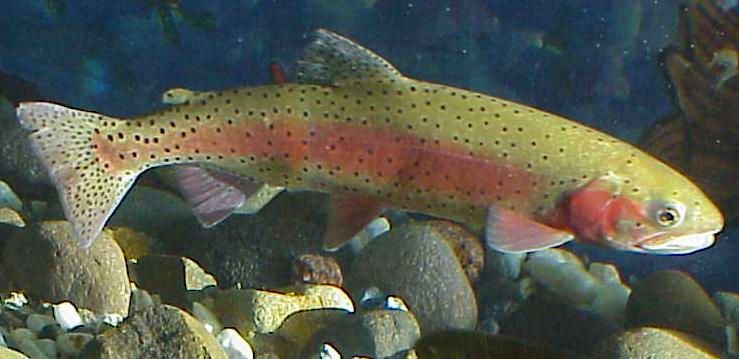
The Lahontan cutthroat trout belongs to the Salmonidae family. It can reach 1 m for 24 kg. It has a lifespan of less than 5 years. It breeds between February and July. The best time to catch it is between March and April. It is a quite large fish with a square tail to hunt prey and avoid predators. The coloring is green to greenish brown on the back, pale yellow with a pink lateral band on the sides and silver to white on the belly. Parr marks fade in mature fish. Spawning trout can be copper, red and orange, especially male. Large rounded spots, almost as black as ink, scatter little over the body, with less below the lateral line. Like other cutthroat trout, they have a distinct red to orange mark on their throats, but can be pale on lakes.
The Lahontan cutthroat trout is a famous fish you can catch in Muncie.The Moapa Dace
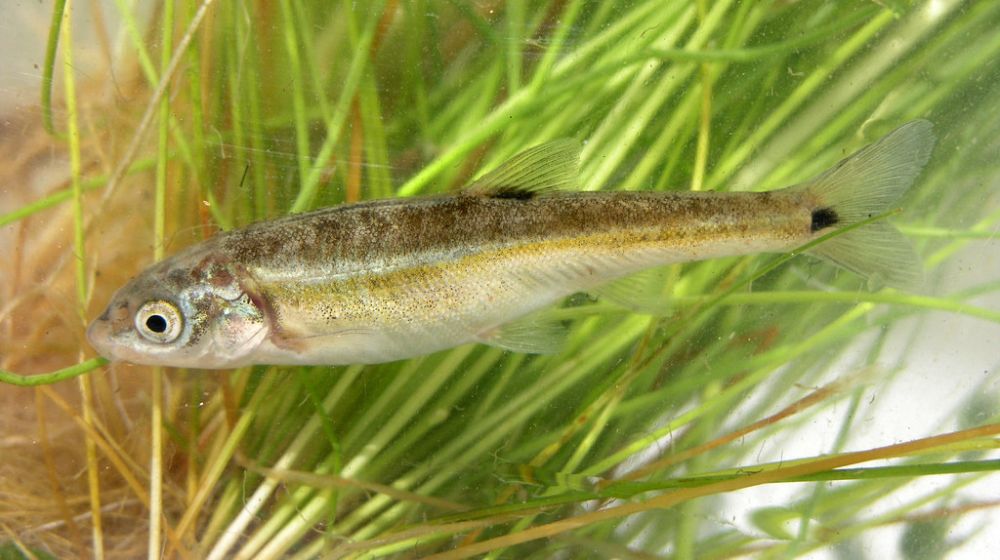
The Moapa Dace belongs to the Cyprinidae family. It has an average size of 10 to 13 cm. It has a lifespan of 4 years old. It may spawn throughout the year with a maximum activity in spring. It is an endangered species so the fishing is prohibited. It is a small fish with a short head, a terminal mouth and thick, semiconducting lips. The dorsal fin begins above or slightly behind the insertion of the pelvic fins and the caudal fin is forked. The dorsal color is dark, the sides are brownish with slightly golden areas and the ventral color is light. There is a dark spot on the tail and a dark line on each side of the body. The scales are small and deeply inlaid and the skin looks like leather. Some dace species have a small maxillary barbell, but not the species.
The Moapa Dace is a famous fish you can catch in Muncie.The Razorback Sucker
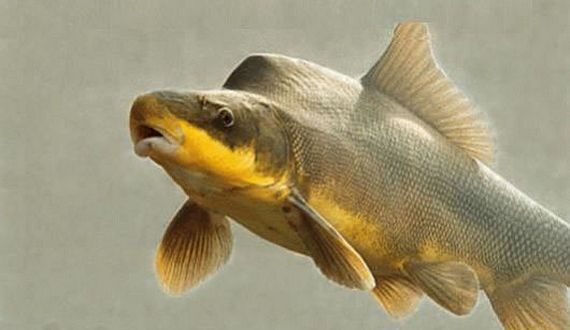
The Razorback Sucker belongs to the Catostomidae family. It is a relatively large catostomidae, reaching more than 91 cm in length and weighing 5 to 6 kg. It has a lifespan of 50 years. It nests from January to June. It cannot be fished because of its status as an endangered species. Razorback suckers are similar to other Catostomidae, with the exception of two main characteristics. The most characteristic features of the razorback sucker are a pronounced edge made of neural and internal bone that extends from the head to the dorsal fins, as well as elongated filaments on the gills. Females have a lower keel. Well-developed filaments are made for zooplankton feeding. It has a long snout, a long rounded head that is ventrally compressed and a ventral mouth with a split lower lip. There is 12 to 15 rays on the dorsal fin and the anal fin has 7 rays. Pelvic and anal fins are longer in males. It has an almost straight lateral line with 68 to 87 scales.
The Razorback Sucker is a famous fish you can catch in Muncie.The Channel Catfish
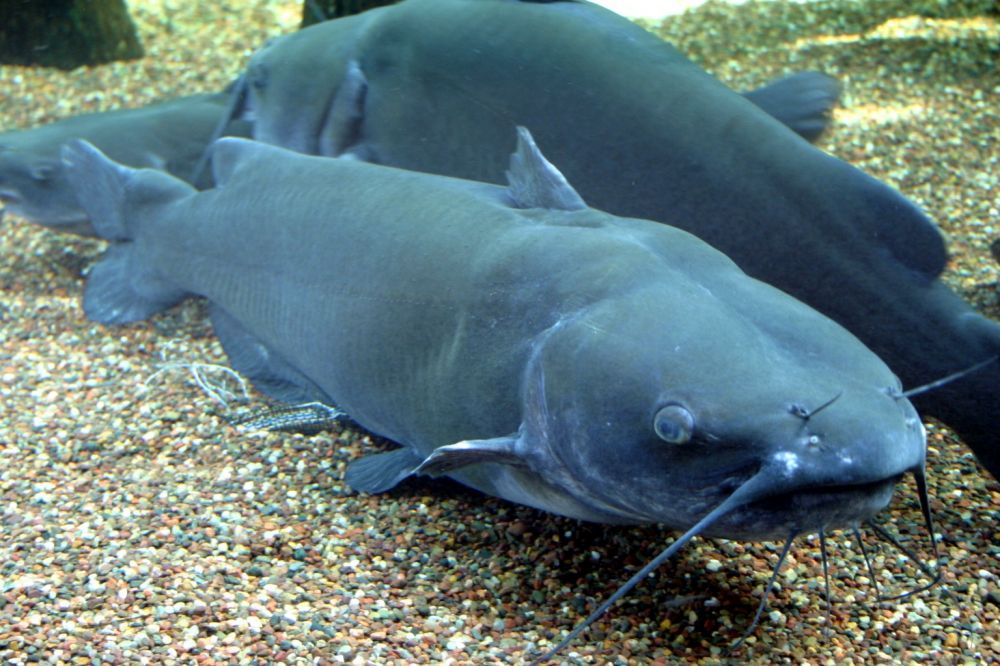
The Channel Catfish belongs to the Ictaluridae family. adults often weigh between 40 and 60 cm. The maximum weight recorded is 26.3 kg. It has a life span of 15 years. It breeds from May to July. The ideal time to fish them is from March to May, before the breeding season. The body is elongated and flattened. The eyes are small and the mouth is lesser. They have eight sensory barbells, or "whiskers", around their mouths. Four whiskers are on the chin, two on the muzzle and one at both corners of the mouth. The tail is deeply forked with the edge of the rounded anal fin. The adult color is pale grey to olive on the back and white to yellowish on the belly. The young are generally light grey at the back and silvery on the sides. The sides have scattered dark spots.
The Channel Catfish is a famous fish you can catch in Muncie.The Pallid Sturgeon
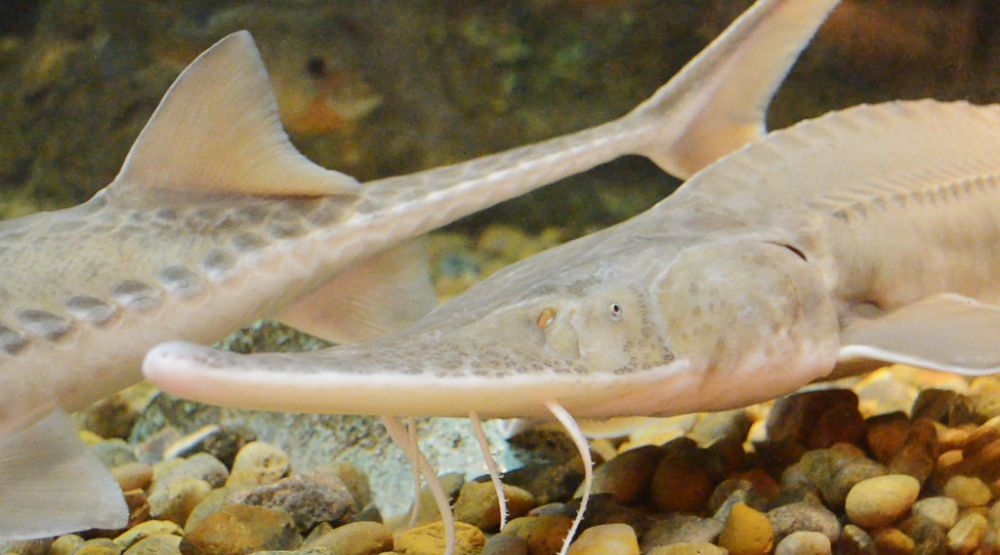
The Pallid Sturgeon belongs to the Acipenseridae family. it measures between 70 and 150 cm long and 39 kg in adulthood. The Pallid Sturgeon takes 15 years to reach maturity, and can live for more than a century. it breeds from May to July. Considered as endangered, it cannot be caught. Like the other Acipenseridae, it is considered as a "living fossil". The Pallid Sturgeon has a characteristic appearance that makes it to be qualified as "primitive" or "dinosaur". It has a pale color, especially in adults who fade with time, with a greyish back and sides. Its caudal fin is heterocercal, with an upper lobe more developed than the lower lobe. Like other sturgeons, the Pallid Sturgeon has no calcified scales or bones, unlike more recent fish species. It has a cartilaginous skeleton with five rows of thick patches that extend along its sides, belly, back and most of its head. These plates are covered by the skin and protect the animal. This cartilage also extends to the back of the fish’s body, between the dorsal fin and the tail. The mouth starts well set back from the tip of the head. Because it has no teeth, it uses this stretchy mouth to suck small fish, shellfish and other foods from the bottom of the river. Like all sturgeons, it has four barbells. We think they have a sensory role in detecting food.
The Pallid Sturgeon is a famous fish you can catch in Muncie.Our fishing forecast of Muncie indicates the best time to go fishing in this city.
Our fishing forecast of Muncie indicates the best time to go fishing in this city.
Our fishing forecast of Muncie indicates the best time to go fishing in this city.
